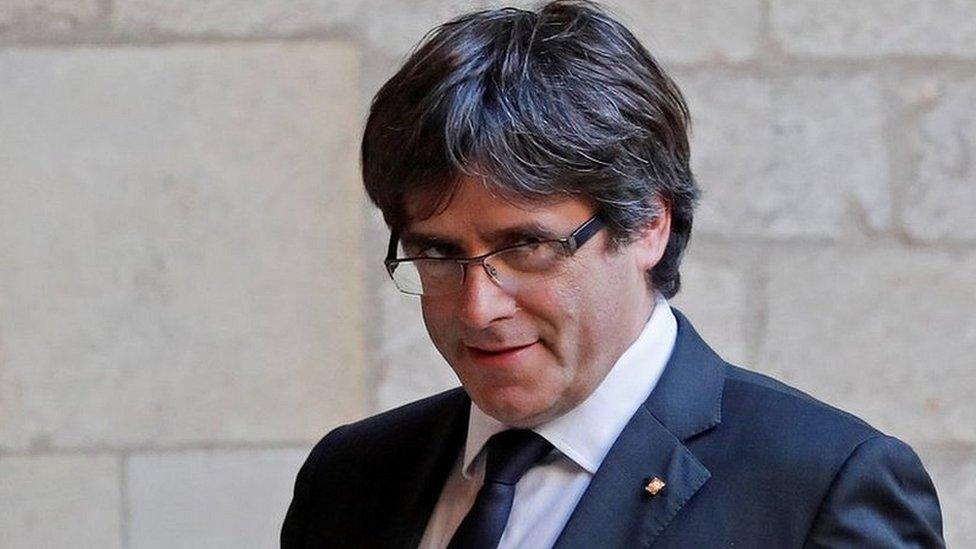Catalonia Spain: Pro-unity marchers parody secessionists
- Published
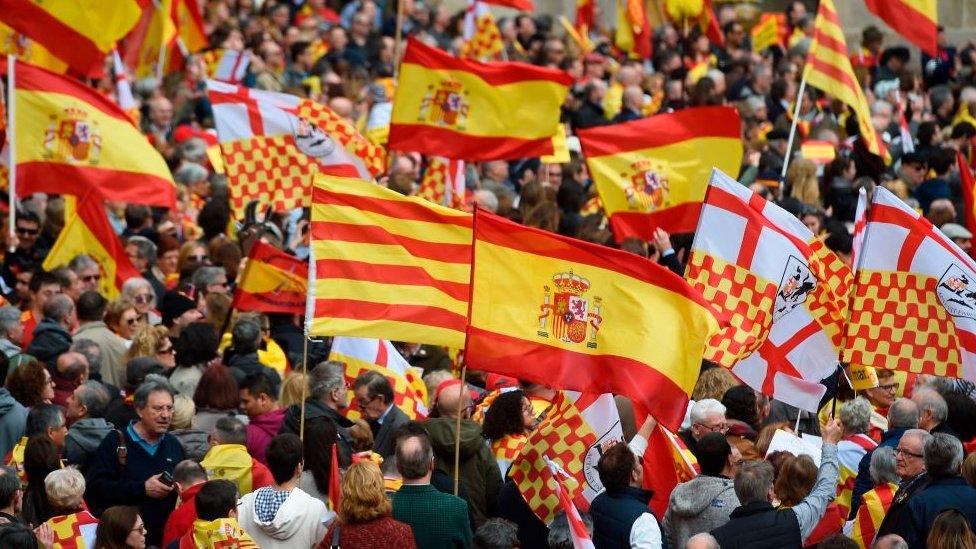
The fictional state of Tabarnia has its own flag, anthem and even currency
Thousands of opponents of Catalan secession from Spain have attended a demonstration in Barcelona, in support of a fictional state called Tabarnia.
They say Tabarnia would itself split from Catalonia in order to stay part of Spain, were Catalonia to become independent.
The concept, established as a parody, has spread online.
Police in Barcelona said 15,000 people attended the march while organisers said it was far more.
Supporters waved Catalan, Spanish and invented Tabarnian flags, shouting: "The joke is over! Free Tabarnia!"
The name Tabarnia is an amalgamation of Barcelona and the coastal province of Tarragona. Creators of the fictional would-be state have also created their own national anthem and even currency.
The imaginary state would include areas where unionists outvoted separatists in December's regional elections.
"We are here because we are fed up, fed up of the independentist process and that a minority is leading us towards the brink," Mari Carmen Guerrero, a 33-year-old protester with a Tabarnia flag round her neck, told AFP news agency.
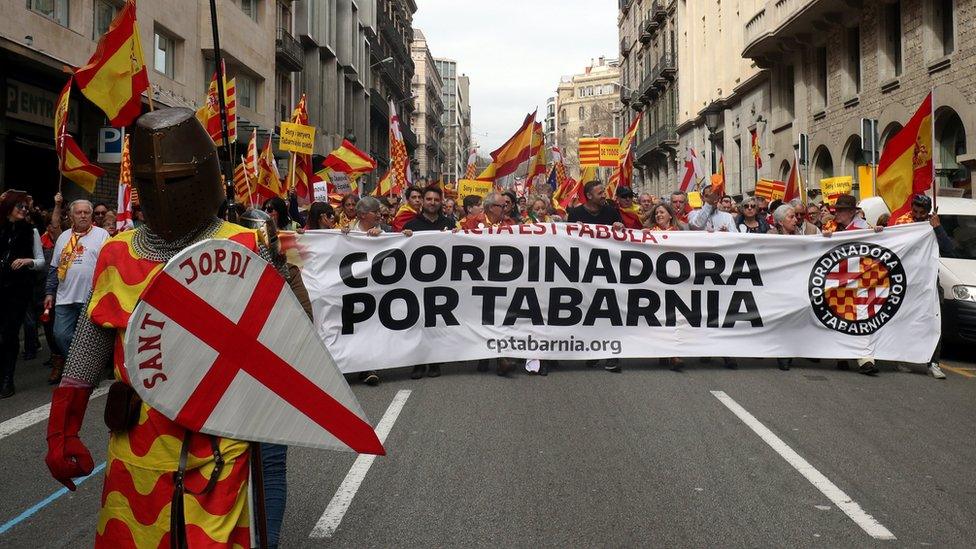
The "Tabarnia" protesters claim the patron saint of Catalonia, Sant Jordi (Saint George) as their own
Among those joining the march were Alberto Fernandez Diaz, regional head of Spain's ruling Popular Party and Javier Ortega Smith, head of the ultra-conservative Vox party, the agency reported.
The mobilisation called upon "all Tabarnese, Catalans, Spaniards and Europeans" to "put fraternity and optimism above the search for rupture and false differentiation", said Tabarnia spokesman Jaume Vives, according to Efe news agency.
Catalans voted in favour of independence in October but the referendum was deemed illegal by Spanish courts.
Weeks later, separatist lawmakers declared independence anyway.
The central government in Madrid then sacked the Catalan regional government, imposed direct rule and called new elections - but pro-independence parties returned with a slim majority.
- Published24 January 2018
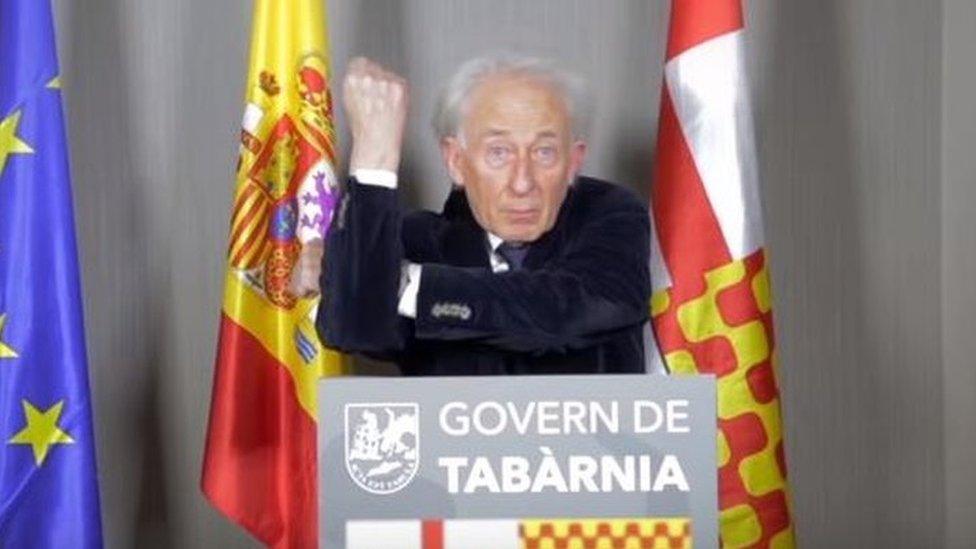
- Published27 January 2018
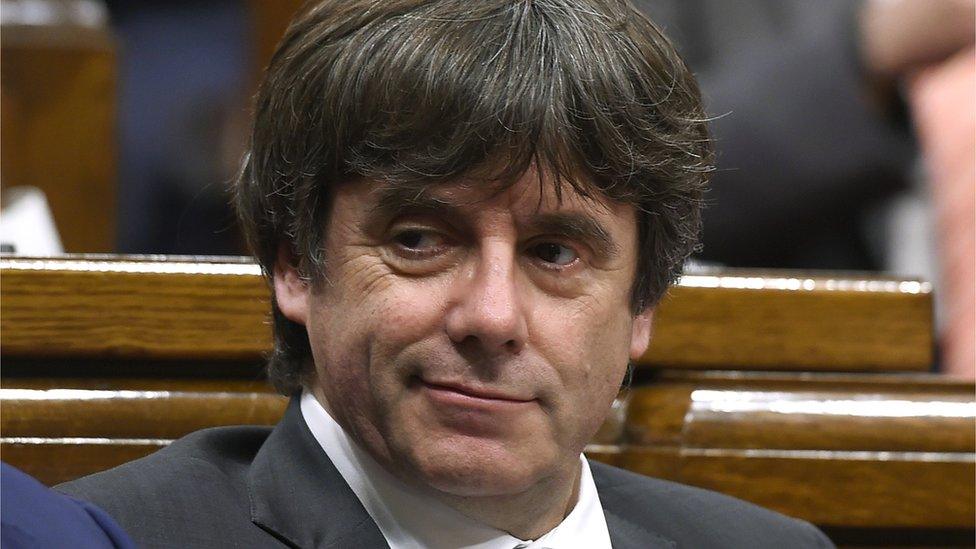
- Published14 October 2019
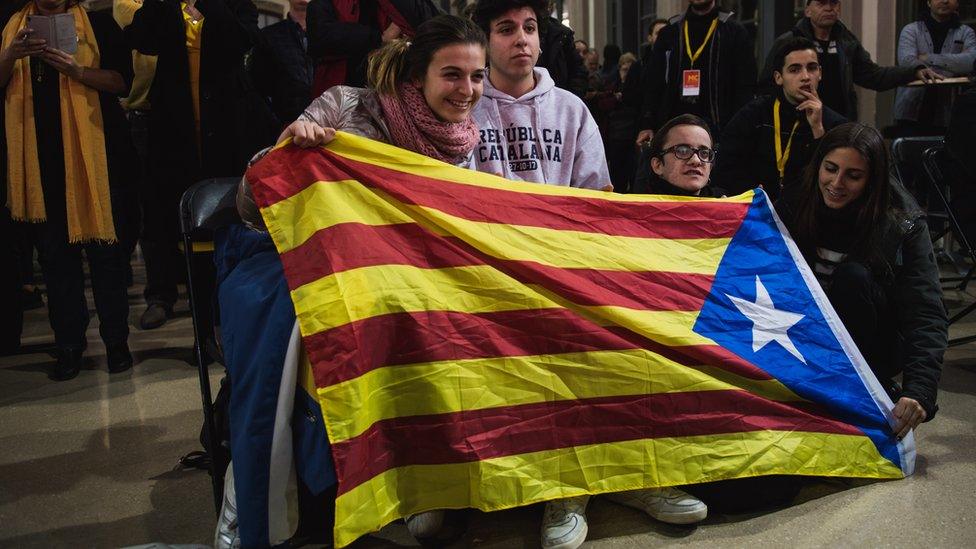
- Published26 March 2018
